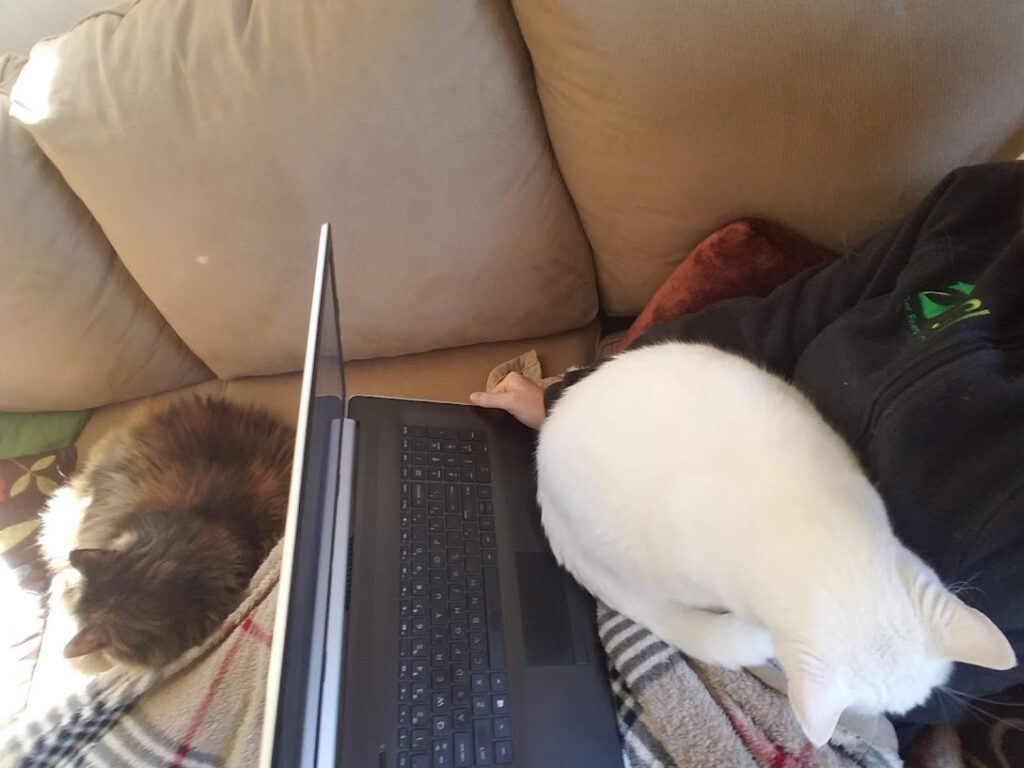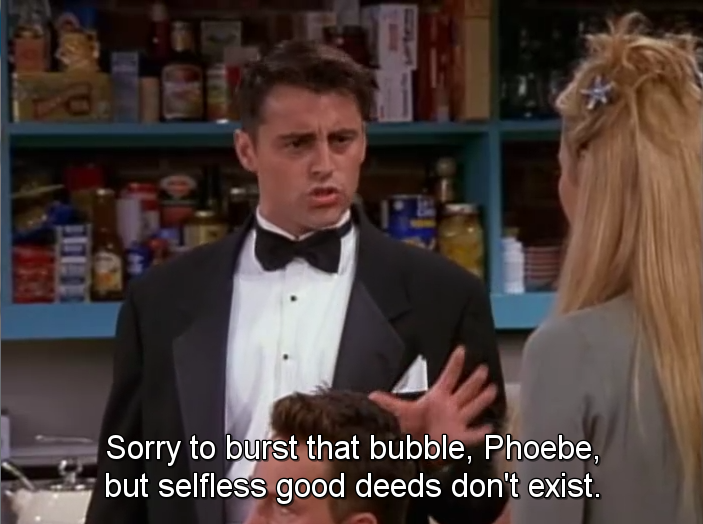Part 2 – Objectivist Values
I know a small number of people who were genuinely hurt by the pope’s actual comments about childless couples earlier this year and plenty more who were enraged by the subsequent headlines that were largely taken out of context. This series is probably an exercise in hair-splitting, but it’s also an opportunity for me to examine how I feel about the issue and look more deeply at the context. I believe context matters, and last week we looked at what was said, the man who said it, the church he represents, and the beliefs he supports. Without looking at his actual comments, it’s easy to draw the conclusion that Pope Francis believes childless couples to be bad people, but it’s a lot more nuanced than that, and it really requires a closer examination of two words in particular: “parenthood” and “selfishness.”
The Act of Parenthood
While possibly implied, Pope Francis did not actually use the term “selfish” to directly describe people who choose not to have children. He did talk about the importance of taking on a parenthood role, either as a biological parent, as an adoptive or foster parent, or (he didn’t mention these, but I think it’s implied) as a Godparent or mentor. What he said about people who choose not to take on parenthood roles (broad definition) is that it “diminishes us” and limits our capacity for humanity. I tend to agree with the logic that choosing not to make human connections with others limits what we as a society generally consider to be the human experience.
At the end of his general audience, he did use the term “selfish” as part of his closing prayer, but he was specifically praying for those who “close themselves off from life,” hoping they will “open their hearts to love.”[1] As he described, biological parenthood is not the only way to connect with and demonstrate love for others. He also mentioned (and I covered this in last week’s post) the fact that members of the clergy and religious orders do not have children of their own, but rather devote their lives to service and giving back to their communities.

Before I go any further down this line of argument, I want to say for the record that I am not trying to justify my own choices, compare myself to a nun, or find a loophole in the pope’s logic – it’s more just an interesting thought experiment for me at this point. For the record, I feel no desire to be a parent in the traditional sense, but ever since I was a child, I have felt a call to save the planet somehow. As an adult, I feel like when I get up every day, I have the opportunity to do my part to leave the world better than I found it, and I see that as an act of service but also an act of love.
I recognize how incredibly fortunate I am just to be able to say that I derive such immense joy and satisfaction from the work I do, and I don’t want to give that up. Maybe that is selfish, but it’s not entirely self-serving either. In a very real way I parent an organization, and it is a very demanding only child (as we tend to be). I know that my work helps other people (hopefully many other people), but I also know that I would not be able to do the work I do and love if I had a child of my own. Some of my friends manage kids and jobs and do so amazingly well – I am truly in awe of all working parents, particularly over the last two years – but I can barely take care of myself after I’m done running a company all day, and I don’t think there’s any way I could be responsible for another human being. My cats are independent enough that I don’t feel like I’m neglecting them – and they let me know when they need something.
I can make the argument that by choosing not to have children of my own, I am able to care for even more people and the planet through my job. The parallel to religious orders taking on service as a form of parenthood is justification enough for me in the course of this argument, even if it’s not for Francis (I’m not Catholic so it makes very little difference to me what he thinks about my choices). But then I took a step back and asked why I felt the need to justify this choice to anyone. What about the people who “just don’t want to” have kids [3] and don’t feel they have to validate that decision with some kind of parenthood replacement? For that, I’d like to take a look at a very specific definition of “selfishness,” brought to us by everyone’s favorite Objectivist philosopher Ayn Rand.

The Virtue of Selfishness
Please note that I am not a student of Objectivism, but I have read and thoroughly enjoyed several of Rand’s books, and I have tried at times over the years to learn more about her philosophy. While it is not possible to distill an entire philosophical school of thought into one paragraph, she herself described the gist of it in the following sentence: “the concept of man as a heroic being, with his own happiness as the moral purpose of his life, with productive achievement as his noblest activity, and reason as his only absolute.”[4] Her philosophy, introduced in the mid-twentieth century, never got much traction outside of American libertarians and conservatives, but I think in their adoption of it, there has been a flattening of her ideas and a loss of some valuable nuance.
Again, context matters, and I got some interesting context when researching her background for this post. Ayn Rand (a.k.a. Alice O’Connor, a.k.a. Alisa Zinovyevna Rosenbaum) was born in St. Petersburg in 1905 to a bourgeois family – her father owned a pharmacy. During the Bolshevik Revolution in 1917, her father’s pharmacy was requisitioned by the government, and her family fled to Crimea. She studied history and philosophy in school before moving to the United States in 1926 and eventually to Hollywood where she worked as a screenwriter for a time. (It was there she met her husband, actor Frank O’Connor.) In the coming years she gained prominence through her writings, which highlighted the principles of Objectivism and were clearly influenced by the events of her life.[5]
Given that context, let’s look at the word in question. Rand, whose book title is referenced above,[6] defines selfishness as “concern with one’s own interests.” That’s it. This definition is decoupled from any moral valuation – it’s not inherently “bad.”[7] While a more commonly accepted societal definition of selfishness connotes extreme self-interest to the detriment of others, Rand’s position is that people should be free to act in their own self interest in order to pursue healthy, fulfilling lives. She believes that living in a society is optimal for survival, but her vision of an ideal rational person is someone that neither sacrifices himself for others’ benefit nor sacrifices others for his own benefit. (This is an important point to remember for any politician wielding a copy of Atlas Shrugged,[8] believing that Ayn Rand has granted him permission to screw others over at will.)

But here’s where it gets interesting – and something I think a lot of people miss about Objectivism. While she does not believe that any one person should be obligated to make sacrifices for the benefit of anyone else, she also believes that we are free to help others if we so choose. The critical difference being who makes that choice: you (for yourself) or someone else (for you). In a 1959 interview she revealed her reasons for financially supporting her husband through a career transition – she said it was because it was in her own best interest to do so and that she took “selfish pleasure” in ensuring her husband could follow his passions.[10]
In her view, altruism or self-sacrifice is the sin because it means placing others’ interests above your own. But, again, her definition of selfishness means that helping someone else isn’t altruistic if you get pleasure from it; it’s selfish. In that case, when the ideal Objectivist does something for someone else, it comes from a place of selfishness (selfish love, as Rand describes it), not from a sense of obligation. And I think a lot of the people who invoke her name stop with the idea that they don’t owe anyone else anything and forget that she herself took pleasure from helping others (at least one that we know of).
~
So where does that leave us? With at least one more post coming to try to tie these loose ends together. And why? It’s possible that someone might benefit from this dive into theology and philosophy, and if so, that’s great. But ultimately I’m having fun (selfishly so) examining these ideas, and apparently that’s what’s important.
Thanks for reading!
[1] https://www.vatican.va/content/francesco/en/audiences/2022/documents/20220105-udienza-generale.html
[2] https://doug.fandom.com/wiki/Bud_Dink
[3] https://www.pewresearch.org/fact-tank/2021/11/19/growing-share-of-childless-adults-in-u-s-dont-expect-to-ever-have-children/
[4] https://en.wikipedia.org/wiki/Objectivism
[5] https://en.wikipedia.org/wiki/Ayn_Rand
[6] https://www.goodreads.com/book/show/665.The_Virtue_of_Selfishness
[7] https://aynrand.org/novels/the-virtue-of-selfishness/
[8] https://www.goodreads.com/book/show/662.Atlas_Shrugged
[9] https://imgur.com/gallery/u7T9g
[10] https://www.theatlantic.com/business/archive/2015/06/ayn-rand-selfish-love/395702/
0 Comments